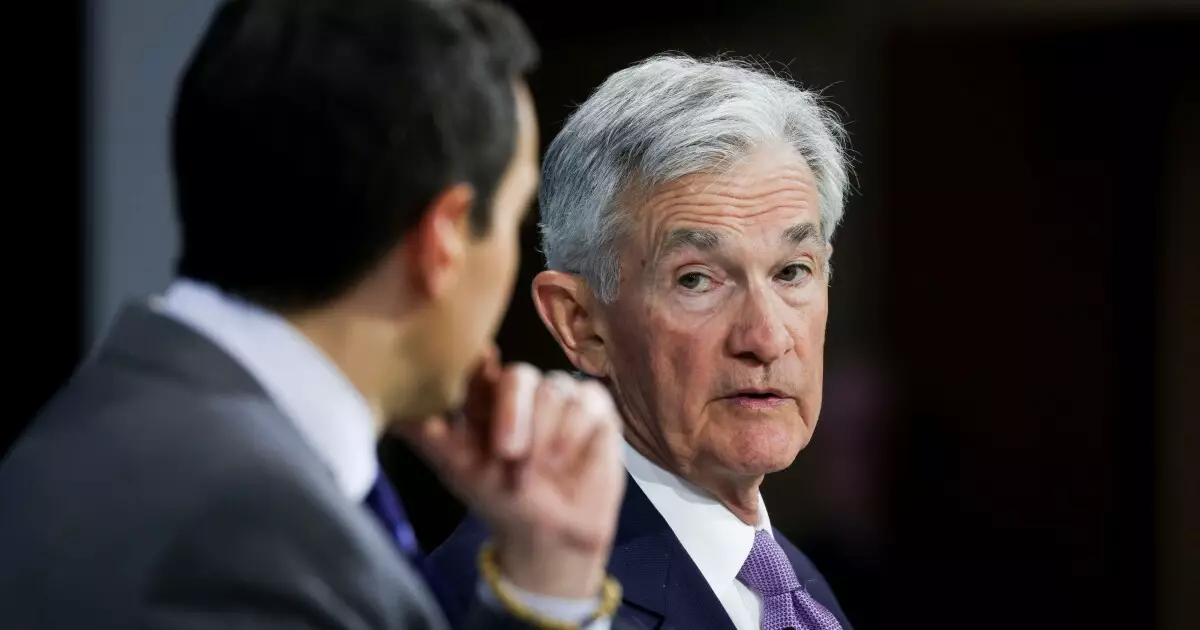In a recent discussion at the New York Times’ Dealbook Summit, Federal Reserve Chair Jerome Powell addressed growing concerns about the influence of political figures on the central bank’s autonomy. Amid speculation regarding a so-called “shadow Fed chair,” a concept introduced by Scott Bessent, Trump’s proposed Treasury Secretary, Powell confidently dismissed fears of any diminishment in his authority. He emphasized the importance of maintaining the Federal Reserve’s independence, stressing that the institution’s primary mandate is to make decisions that benefit all Americans, free from partisan pressures or immediate political interference.
Powell’s assertions regarding the Fed’s independence highlight the critical balance that must be maintained in a democratic society. The Federal Reserve operates under a framework designed to insulate it from the whims of politics, which enhances its ability to respond effectively to economic challenges without fear of reprisal or undue influence. This independence, as Powell articulated, allows the Fed to navigate the complex landscape of monetary policy, focusing on data-driven conclusions rather than the fluctuating priorities of elected officials.
During his interview, Powell acknowledged the necessity of fostering a constructive relationship between the Fed and the incoming Trump administration. He referred to the long-standing tradition of cooperation between the Treasury and the Fed, with routine meetings termed essential for building mutual respect and trust. This ongoing dialogue is particularly vital in times of economic uncertainty, where coordinated efforts can facilitate more effective responses to fiscal and monetary challenges.
The historical precedent of collaboration between these roles serves as a foundation for Powell’s optimism. He conveyed a clear message that, while there are boundaries inherent in their respective roles, the collaborative approach during crises could usher in more effective solutions. Powell’s thoughtful comments underscore the broader principle of institutional integrity and the importance of maintaining clear lines while working together for the common good.
Another significant aspect of Powell’s dialogue was his response to the uncertainties surrounding President Trump’s proposed tariffs. The central bank’s cautious stance reflects a prudent approach in contemplating potential economic repercussions. Powell indicated that the Fed is closely monitoring current economic indicators rather than preemptively adjusting policy in response to tariff discussions, which remain undefined in terms of scope and duration. This measured response underscores the Fed’s focus on the present state of the economy, illustrating a commitment to respond to actual conditions rather than speculation.
Such an approach reinforces the central idea that effective monetary policy must be adaptable and responsive to real-time economic data, rather than driven by political narratives or predictions of future changes. Powell’s recognition of the unknowns inherent in trade policy exemplifies a deep understanding of the interconnected nature of the global economy and the complexities involved in shaping policy.
Furthermore, Powell’s remarks on the intersection of cryptocurrency and banking reveal an ongoing challenge for policymakers. As digital assets continue to gain prominence, the Federal Reserve’s role in regulating their interaction with traditional banking systems becomes increasingly critical. Powell emphasized the need for consumer protection and regulatory measures to ensure that the rise of cryptocurrency does not undermine the stability of the banking sector.
The evolving landscape of digital currencies presents both opportunities and risks, requiring the Fed to navigate uncharted waters carefully. Powell’s acknowledgment of these complexities highlights the necessity for a balanced approach that fosters innovation while ensuring consumer safeguards are firmly in place.
Jerome Powell’s insights illustrate the intricate relationship between the Federal Reserve and political entities, especially in times of political transition. His emphasis on independence, collaboration, and the need for a thoughtful approach to economic policy reinforces the Fed’s roles during turbulent periods. As the nation faces a host of economic challenges and shifts, Powell’s leadership will be a critical asset in ensuring that the Fed continues to operate effectively, safeguarding the economic welfare of all Americans. This delicate balance of power and collaboration will undoubtedly shape the future trajectory of the U.S. economy.

